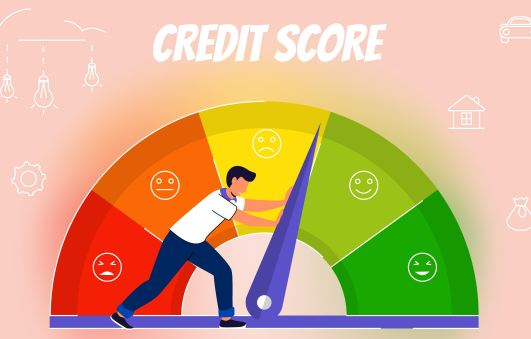
Building your credit score from scratch can seem like a challenging task, but it’s a critical step toward achieving financial stability and accessing essential financial products. A good credit score can make it easier to qualify for loans, credit cards, and even rental agreements. Here are some steps to help you build your credit score from the ground up:
1. Understand the Basics:
Before you start building credit, it’s essential to understand what a credit score is and how it’s calculated. A credit score is a three-digit number that represents your creditworthiness. It’s based on factors such as your payment history, credit utilization, length of credit history, types of credit, and recent credit inquiries. The most widely used credit scoring model is the FICO score, which ranges from 300 to 850.
2. Open a Secured Credit Card:
One of the easiest ways to start building credit is by opening a secured credit card. A secured credit card is backed by a cash deposit, which acts as collateral and sets your credit limit. Start with a small deposit that you can comfortably afford. Use the card for small, regular expenses, and pay off the balance in full and on time each month. This demonstrates responsible credit use and helps build a positive payment history.
3. Become an Authorized User:
If you have a family member or friend with a credit card in good standing, you can ask them to add you as an authorized user. Being an authorized user on an existing credit card account can help you build a credit history based on the primary cardholder’s account. Make sure that the primary cardholder has a good payment history, as this will reflect positively on your credit report.
4. Apply for a Credit Builder Loan:
Credit builder loans, often offered by credit unions and some banks, are specifically designed to help people build credit. These loans work differently from traditional loans. When you’re approved, the loan amount is deposited into a savings account or certificate of deposit (CD), which you can’t access until the loan is paid off. You then make monthly payments, and each payment is reported to the credit bureaus, helping you establish a positive payment history.
5. Pay Bills on Time:
Consistently paying your bills on time is one of the most critical factors in building good credit. This applies to all types of bills, including rent, utilities, and student loans. Even if these bills don’t typically appear on your credit report, late or missed payments can be sent to collections, which will negatively impact your credit. Set up reminders or automatic payments to ensure you never miss a due date.
6. Monitor Your Credit Report:
Regularly monitor your credit report to ensure that all the information is accurate. You can obtain a free credit report from each of the three major credit bureaus (Experian, Equifax, and TransUnion) once a year at AnnualCreditReport.com. Review your report for any errors, such as incorrect personal information or accounts that don’t belong to you. Dispute any inaccuracies to have them corrected promptly.
7. Use Credit Sparingly:
While it’s important to use credit to build your credit history, it’s equally important not to overextend yourself. Keep your credit utilization low, which means you should use only a small percentage of your available credit. Aim to keep your credit utilization below 30%. For example, if you have a $500 credit limit on your secured credit card, try to keep your balance below $150.
8. Build a Mix of Credit Types:
Having a diverse mix of credit types can positively impact your credit score. This includes revolving credit (credit cards) and installment credit (loans with fixed payments over time). As you build your credit, consider adding different types of credit gradually. However, don’t apply for multiple credit accounts at once, as this can lead to hard inquiries, which can temporarily lower your credit score.
9. Be Patient:
Building credit takes time, and it won’t happen overnight. It may take several months or even a few years to establish a solid credit history and achieve a good credit score. Be patient and stay committed to good financial habits.
10. Seek Professional Advice:
If you’re unsure about how to proceed or need guidance on building your credit, consider seeking advice from a financial counselor or credit counseling agency. They can provide personalized advice and strategies to help you build and maintain good credit.
Building credit from scratch is a journey that requires diligence, responsible financial behavior, and time. By following these steps and staying committed to good credit habits, you can establish a solid credit history and work towards achieving a favorable credit score. This, in turn, will open up doors to more financial opportunities and options in the future.
Leave a Reply